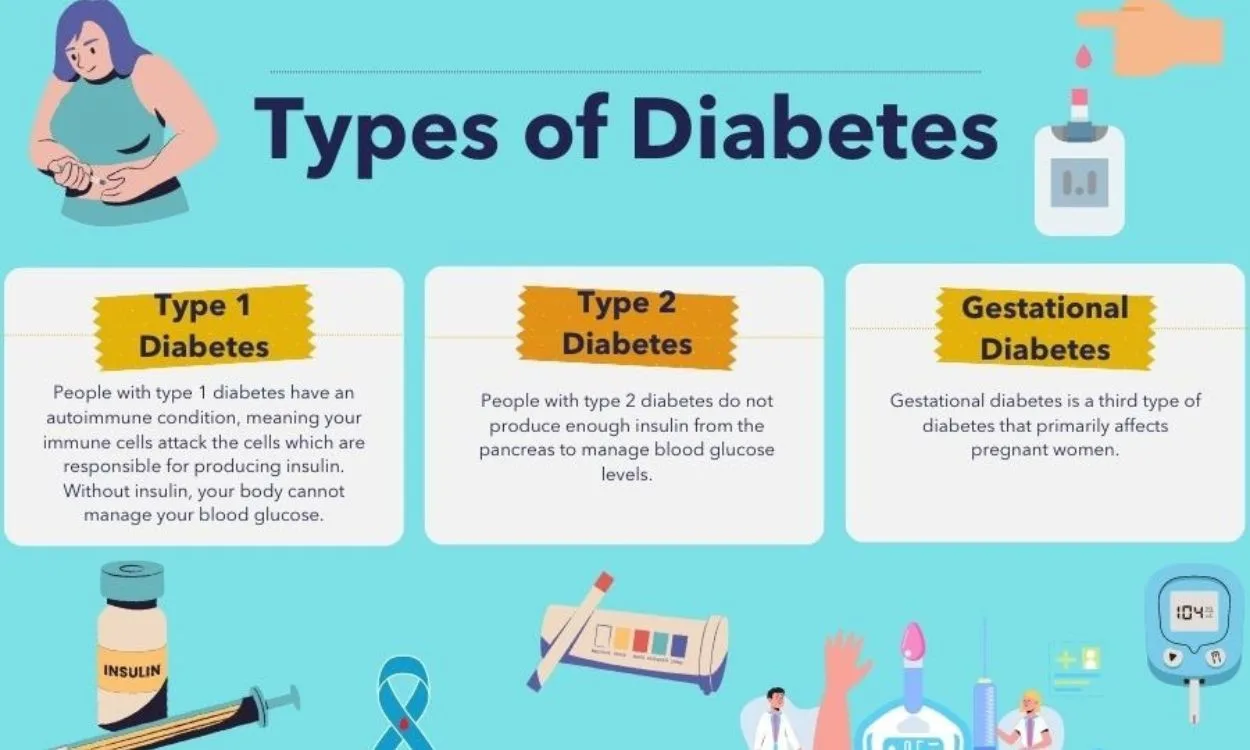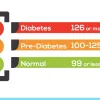How does gestational diabetes differ from other types of diabetes?
Diabetes is a chronic medical condition characterized by high blood sugar levels. There are different types of diabetes, including type 1, type 2, and gestational diabetes. In this blog, we will focus on gestational diabetes and understand how it differs from other types of diabetes.
What is gestational diabetes?
Gestational diabetes is a type of diabetes that occurs during pregnancy. It affects pregnant women who have never had diabetes before. This condition usually develops around the 24th to 28th week of pregnancy and typically goes away after delivery. However, women who have had gestational diabetes are at a higher risk of developing type 2 diabetes later in life.
How does gestational diabetes differ from type 1 and type 2 diabetes?
1. Cause: The causes of gestational diabetes, type 1 diabetes, and type 2 diabetes differ.
- Gestational diabetes: During pregnancy, the placenta produces hormones that can affect insulin function. Gestational diabetes occurs when the pancreas cannot produce enough insulin to overcome these hormonal changes.
- Type 1 diabetes: Type 1 diabetes is an autoimmune condition where the immune system mistakenly attacks and destroys the insulin-producing cells in the pancreas. This leads to a lack of insulin production.
- Type 2 diabetes: Type 2 diabetes is a metabolic disorder that occurs when the body becomes resistant to insulin or does not produce enough insulin. It is often associated with lifestyle factors such as obesity, sedentary lifestyle, and poor diet.
2. Onset: The time of onset for each type of diabetes differs.
- Gestational diabetes: Gestational diabetes typically develops during pregnancy and usually disappears after childbirth. It may go undetected until routine screening tests are conducted during prenatal care.
- Type 1 diabetes: Type 1 diabetes is usually diagnosed in children, teenagers, or young adults, but it can occur at any age.
- Type 2 diabetes: Type 2 diabetes is often diagnosed in adults but can occur at any age. It is more common in individuals who are overweight or obese.
3. Management: The management approach for each type of diabetes may vary.
- Gestational diabetes: The primary treatment for gestational diabetes involves lifestyle modifications, including a healthy diet, regular physical activity, and monitoring blood sugar levels. In some cases, insulin may be required to control blood sugar levels.
- Type 1 diabetes: Type 1 diabetes management involves insulin therapy, blood sugar monitoring, healthy eating, regular physical activity, and often requires close medical supervision.
- Type 2 diabetes: Type 2 diabetes management focuses on lifestyle changes such as weight loss, healthy eating, regular physical activity, and sometimes oral medications or insulin therapy.
4. Long-term implications: The long-term implications of each type of diabetes differ.
- Gestational diabetes: Women with a history of gestational diabetes have an increased risk of developing type 2 diabetes later in life. Additionally, their children may have a higher risk of obesity and developing type 2 diabetes.
- Type 1 diabetes: Type 1 diabetes requires lifelong insulin therapy and ongoing management to prevent complications such as heart disease, kidney disease, nerve damage, and eye problems.
- Type 2 diabetes: Type 2 diabetes is a progressive condition that can lead to various complications if not properly managed. These complications include heart disease, stroke, kidney disease, nerve damage, eye problems, and foot problems.
Conclusion
Gestational diabetes is a temporary form of diabetes that occurs during pregnancy. It differs from type 1 and type 2 diabetes in terms of cause, onset, management, and long-term implications. It is important for pregnant women to undergo routine screening tests to detect gestational diabetes early and manage it effectively to ensure a healthy pregnancy and reduce the risk of complications.
Now that you have a better understanding of gestational diabetes, if you are pregnant or planning to conceive, it is important to prioritize your health and well-being. Fitpaa, an end-to-end AI-driven metabolism monitoring and management technology, can help you achieve your health and fitness goals during and after pregnancy. With personalized Fitpaa Capsules, expert guidance, and real-time monitoring, you can optimize your metabolism, manage your weight, and ensure a healthy pregnancy. Download the Fitpaa app now and embark on your journey to a healthier you!
Remember, your well-being is our mission at Fitpaa, and we are here to support you every step of the way. Don’t wait, start your fitness journey with Fitpaa today!









